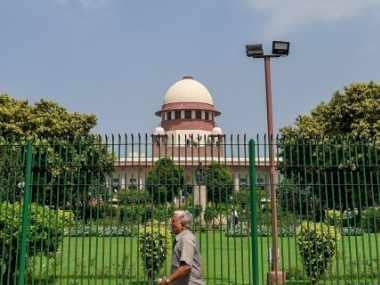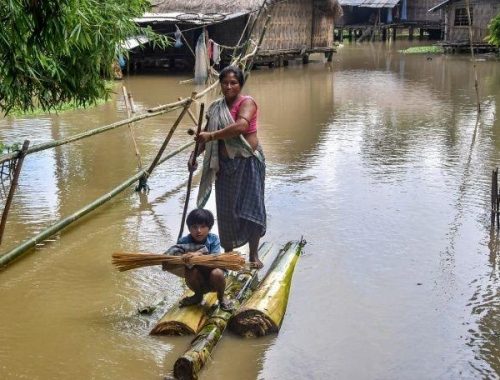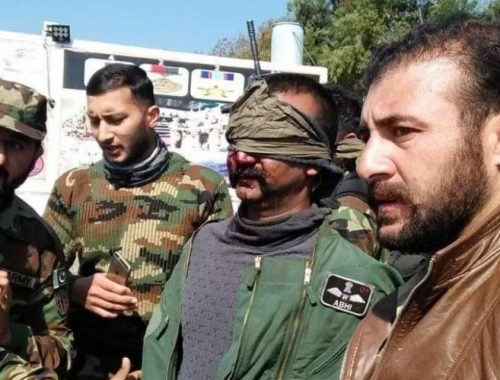India plans to deport seven Rohingya Muslims, who have been in the country since 2012 and served jail terms for illegal entry. The Indian authorities are planning to send all of them back to Myanmar where violence against the ethnic minority has spiked in the Rakhine region.
The move of the government — which considers Rohingya Muslims illegal immigrants and a threat to national security — has drawn criticism from the United Nations, which said their forcible return could mean a violation of international law. The men were held at a detention centre in Assam’s Silchar on charges of illegally entering India and are due to be sent back on 3 October, the UN Special Rapporteur on racism, Tendayi Achiume, said Tuesday. “Given the ethnic identity of the men, this is a flagrant denial of their right to protection and could amount to refoulement,” Achiume said in a statement.
Meanwhile, a fresh plea was moved in the Supreme Court on Wednesday seeking to restrain the Centre from deporting the seven. A bench, headed by Chief Justice Ranjan Gogoi, which made it clear to lawyers at the outset that it will not allow urgent mentioning of matters till the framing of “parameters” on such cases, said that it would take a decision on urgent hearing in this issue after perusing the application.
The bench, also comprising Justices SK Kaul and KM Joseph, was told by lawyer Prashant Bhushan that some Rohingya refugees were on the verge of being deported and the matter required urgent hearing. “No mentioning. We will work out the parameters, then we will see as to how mentioning will be done,” the bench said, adding that matters like execution of a death row convict, eviction cases can be heard urgently.

File image of Supreme Court of India. PTI
Initially, the bench asked Bhushan to file the plea and on being told that the application has already been filed, it said, “We will peruse the file and the decide.”
“The Indian government has an international legal obligation to fully acknowledge the institutionalised discrimination, persecution, hate and gross human rights violations these people have faced in their country of origin and provide them the necessary protection.” Achiume said New Delhi was obliged to refer Rohingyas under its custody to the UN refugee agency to assess their protection needs.
More than 700,000 ethnic Rohingya fled an offensive by Myanmar troops launched nearly a year ago in reprisal for attacks on border posts by Rohingya rebels who took up arms against the ill-treatment of the stateless minority. The United Nations has termed the repression “ethnic cleansing” and “genocide”.
Myanmar’s army has denied nearly all wrongdoing, insisting its campaign was justified to root out Rohingya insurgents. The UN expert said she was “appalled” at the amount of time the seven men from Kyauk Daw township in central Rakhine state had been detained.
“Prolonged detention of this kind is prohibited,” Achiume said. “It could be considered arbitrary, and could even fall under the category of inhuman and degrading treatment.” The seven people would be handed over to the Myanmar authorities and sources said that Myanmar was satisfied with all documentation and their identities.
The scheduled deportations follow an Indian government order last year to return Rohingyas, but the Supreme Court is still considering a petition challenging the order on the grounds it was unconstitutional. The UN expert said nearly 200 Rohingyas are known to be detained in India on charges of illegal entry.
“We urge the government of India to abide by the international norm of non-refoulement and protect the rights of asylum seekers and refugees including Rohingyas,” she said. While successive waves of Rohingyas have fled into Bangladesh, small numbers have found their way to India and Nepal while a small community has also been established in Pakistan.
The interim plea, seeking urgent measures to stop the proposed deportation of seven Rohingyas, has been filed in a pending PIL. The PIL was filed earlier by two Rohingya immigrants — Mohammad Salimullah and Mohammad Shaqir — challenging the Centre’s decision to deport over 40,000 refugees who came to India after escaping from Myanmar due to widespread discrimination and violence against the community.
The fresh plea said that the decision to deport was in “grave violation” of India’s international obligation and moreover, the situation in Myanmar was extremely dangerous for the Rohingyas to return and they are likely to be subjected to torture and even killed.
“Pass an order restraining the Union of India from taking any steps towards the deportation of any Rohingya refugees lodged in jails or detention centres in Assam or other parts of the country in contravention of non-derogable principles of customary international law and during the pendency if the case,” the plea said.
Issue direction to officials of prison at Silchar Central jail in Assam and Union Home Ministry to “allow and facilitate the detenues in question as a well as other detenues on other prisons in Assam to approach the UNHCR in New Delhi to determine/ascertain if they are in need of international protection as refugees within its mandate and for grant of refugee identification cards,” it said.
The plea also referred to alarm raised by United Nations Human Rights expert over the proposed deportation of seven Rohingya to Myanmar, saying their forcible return could constitute “refoulement” which was violative of international law.
Earlier, the apex court had appointed area Sub-Divisional Magistrates (SDMs) as nodal officers who could be approached by the Rohingya immigrants living at Kalindi Kunj in Delhi and Mewat in Haryana with grievances relating to health care, water, sanitation and education.
The bench was hearing petitions including the two filed by Zaffar Ullah and two Rohingyas — Mohammad Salimullah and Mohammad Shaqir. While one plea challenged the Centre’s decision to deport over 40,000 refugees who came to India, the other has sought several human and civic rights for the immigrants in New Delhi.
The Rohingyas, who fled to India after violence in the Western Rakhine State of Myanmar, are settled in Jammu, Hyderabad, Haryana, Uttar Pradesh, Delhi-NCR and Rajasthan.
The First Post with inputs from agencies




